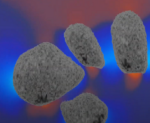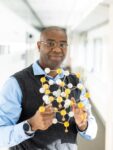The Office of Science in the U.S. Dept. of Energy announced a $23 million research and development opportunity led by Oak Ridge National Laboratory to advance technologies and drive new capabilities for future supercomputers.
DOE Announces 2024 Office of Science Distinguished Scientist Fellows
Four scientists have each been awarded $1 million in direct funding via the Department of Energy (DOE) Office of Science Distinguished Scientist Fellows program. The 2024 DOE Office of Science Distinguished Fellows ….
July 28 Deadline for Office of Science Digital Twins RFI
July 12, 2024 — The Digital Twins Fast-Tracking Committee of the Networking and Information Technology Research and Development (NITRD) National Coordination Office (NCO) of the National Science Foundation, on behalf of the Office of Science and Technology Policy, has published a Request for Information on Digital Twins Research and Development, seeking public input for the […]
@HPCpodcast: DOE’s Chalk Talks Lab Supercomputing Budgets, ECP’s Legacy and Women in HPC
The future of supercomputing isn’t what it used to be, and few know that better than Christine Chalk, federal program ….
Asmeret Asefaw Berhe Issues Letter of Farewell as Director of DOE Office of Science
Following the news last week of her departure as director of the U.S. Department of Energy’s Office of Science since May 2022, Dr. Asmeret Asefaw Berhe has issued a letter of farewell to her agency and White House colleagues. Dr. Berhe is currently on leave from the….
DOE $36M Funding Opportunity: AI for Science
Feb. 13, 2024: The U.S. Department of Energy’s Office of Science, Advanced Scientific Computing Research (ASCR) program, is issuing a $36 million funding opportunity announcement for basic computer science and applied mathematics research in the fundamentals of artificial intelligence (AI) for science. Deadline for letters of intent: Tuesday, March 19, 5 pm ET. Deadline for […]
Dr. Ceren Susut Named DOE ASCR Associate Director of Science
Dr. Ceren Susut has been named associate director (AD) of Science for Advanced Scientific Computing Research (ASCR) in the Department of Energy Office of Science (SC). Dr. Susut has served in ASCR for more than 12 years as a program manager, the director for ASCR’s Computational Science Research and Partnerships Division, and most recently as….
ASCR: Exascale to Burst Bubbles that Block Carbon Capture
Bubbles could block a promising technology that would separate carbon dioxide from industrial emissions, capturing the greenhouse gas before it contributes to climate change. A team of researchers with backing from the Department of Energy’s Exascale Computing Project (ECP) is out to burst the barrier, using a code that captures the floating blisters and provides insights to deter them. Chemical looping reactors (CLRs) combine fuels such as methane with oxygen from metal oxide particles before combustion. The reaction produces water vapor and carbon dioxide, which can easily be separated to create a pure CO2 stream for sequestration or industrial use. Standard post-combustion separation must pull carbon dioxide from a multigas mixture.
Valentino Cooper Appointed to DOE’s Basic Energy Sciences Advisory Committee
April 25, 2023 — Valentino “Tino” Cooper, a scientist at the Department of Energy’s Oak Ridge National Laboratory, has been appointed to DOE’s Basic Energy Sciences Advisory Committee for a three-year term. Cooper’s research elucidates the fundamental understanding of advanced materials for next-generation energy and information technologies. The BESAC provides advice and recommendations on complex […]












